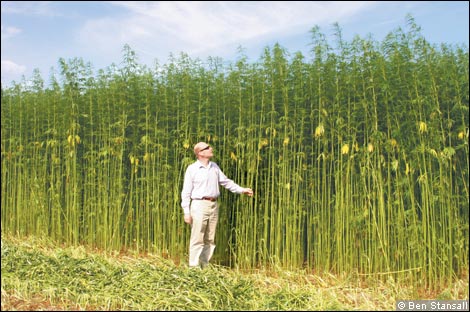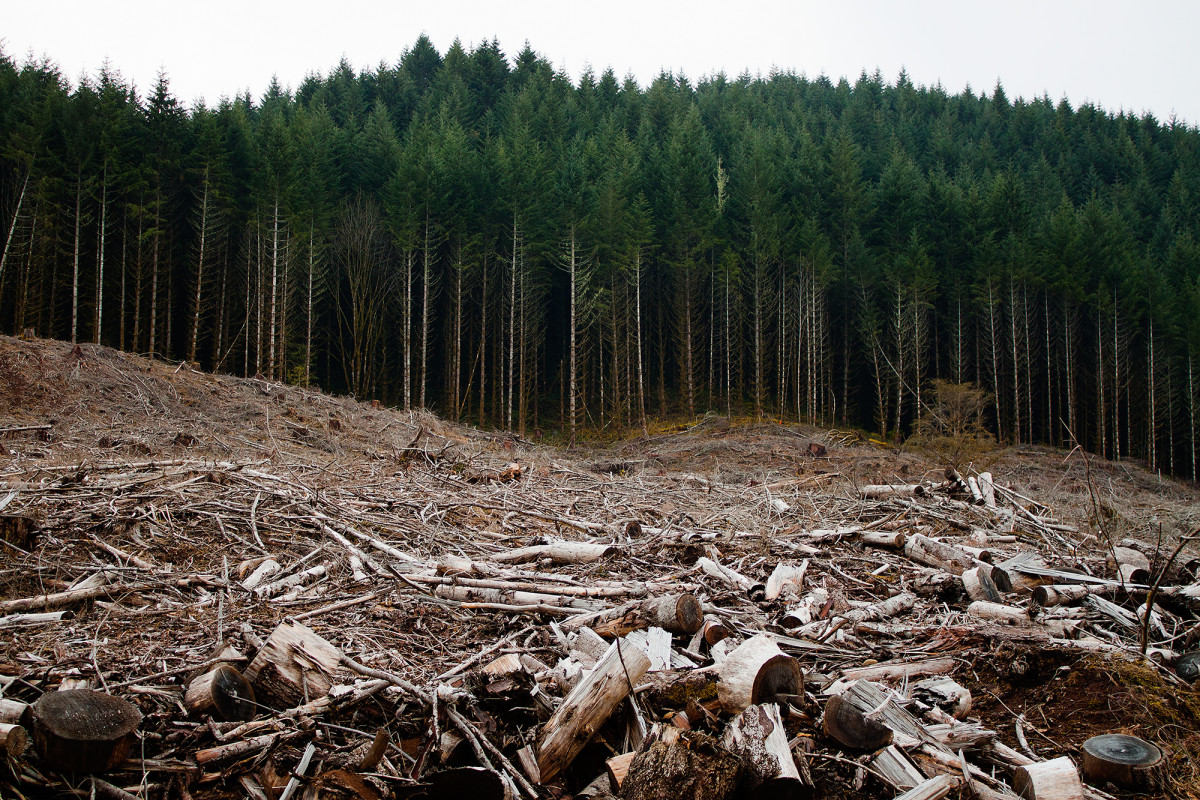Using Industrial Hemp to Make Paper
Disclaimer: I am not a user of marijuana. Nor do I condone, nor condemn, the use of marijuana for recreational use. This is merely a look at the applications of industrial hemp. Industrial hemp is not the same thing as the variety of hemp grown as marijuana.

Hemp Should Be Grown For Paper
Industrial hemp can, and should, be grown for paper production, as an alternative to paper made from wood pulp. It is more economical, more environmentally friendly, produces higher quality paper products, and is a very sustainable crop, that grows very quickly. Yet, why isn't it widely used then? There are a lot of reasons which I will go into further here, and in later, related hubs. For now, let's look at the use of hemp for paper production. Let's start with a little history, then we will get into the science and applications of industrial hemp for paper.
A Brief History of Hemp Paper
Hemp fiber has been used to make paper since the earliest forms of paper were made in ancient China. Some of the oldest papers printed on were found to be made of hemp paper. In the 16th Century, hemp was used to make some of the strongest, longest lasting papers. The Gutenberg Bibles were printed on hemp paper, as was The Declaration of Independence. Paper made at this time was made primarily of recycled hemp canvas that was taken from sail cloth.
George Washington grew industrial hemp. Thomas Jefferson was a supporter of industrial hemp, and encouraged farmers to grow hemp instead of tobacco. What is better for you? Growing hemp to make paper, and other things such as textiles, or growing tobacco for smoking? We all know now how bad smoking is for us. Imagine how different this country would be if we built our foundation on hemp rather than tobacco.
In 1916, the Department of Agriculture published a bulletin on the industrial use of hemp. In bulletin No. 404, it was suggested that hemp should be used for paper production instead of wood pulp.
America has a rich history of growing industrial hemp for paper, and a variety of other products. I will get into those in later articles as well.


So, Why Hemp?
Most paper today is made from wood pulp, either directly, from cutting down trees, or from recycling products made from wood pulp. It is cheaply made because it is a by-product of the logging industry, or at least it started that way. The demand for paper, and various paper products, has grown greatly over the years. The sad truth is 100,000's of trees are cut down for paper, and vast areas of forests are destroyed. The solution to this has been to recycle paper. While this is all well and good, recycled paper still requires the addition of new pulp, as well. And the quality of recycled paper isn't nearly as good as paper made from new pulp. Then, a great number of chemicals are added to the wood pulp and recycled paper. The process of recycling paper is messy, and not great for the environment.
Wood pulp contains 30% cellulose. Cellulose occurs naturally in all plants. The higher the cellulose content, the stronger the fibers. Therefore, paper made from hemp (which is around 77% cellulose) is stronger than paper made from wood pulp. We can make stronger, more long-lasting paper from hemp than we can from wood pulp.
Everything from toilet paper, to high quality art paper can be made from hemp. It is very versatile in it's applications as a paper making product.
Industrial hemp can be easily grown just about anywhere. It grows like, well, a weed. Therefore it is a cheap, effective, and easily grown industrial crop that is far more sustainable than wood pulp. Industrial hemp grows quickly, far more quickly than trees. And, industrial hemp has little to do with the marijuana grown for recreational use. Industrial hemp contains little or no THC.

Environmental Impact of Growing Industrial Hemp
As I said, hundreds of thousands of trees all over the world are cut down for paper production, and forests are being destroyed. Recycling has helped this problem some, but it isn't a definitive solution. Hemp is a better alternative. It is a far more sustainable crop that produces better quality paper. It is also more ecologically friendly to produce.
Paper made from wood pulp requires a large amount of toxic chemicals to get it looking the way it does when you buy it from the store. These chemicals, from dioxins, to chloroform, to chlorides are then dumped into lakes and rivers. These chemicals are toxic to marine life and in turn, to people. Paper mills are notorious polluters of the environment. Around 2,000 different chemicals have been found in the water and marine organisms near paper mills.
Paper made from hemp requires little chemical processing. It can easily be bleached, though not necessary, with the non-toxic, environmentally safe, hydrogen peroxide. Hemp is starting to sound a lot better, now isn't it?
The process of growing industrial hemp is also very environmentally friendly. It requires no pesticides or herbicides, acts as a natural weed restriction, needs little fertilizer and actually enriches the soil that it is grown in. The part of the hemp plant used for paper, and other industrial uses, is the stalk. The nutrients are mostly found in the roots and the flowers and leaves. These are left after the stalks are harvested, returning those nutrients to the soil. Industrial hemp is also resistant to diseases, so very little special attention is needed, and it grows rapidly.










